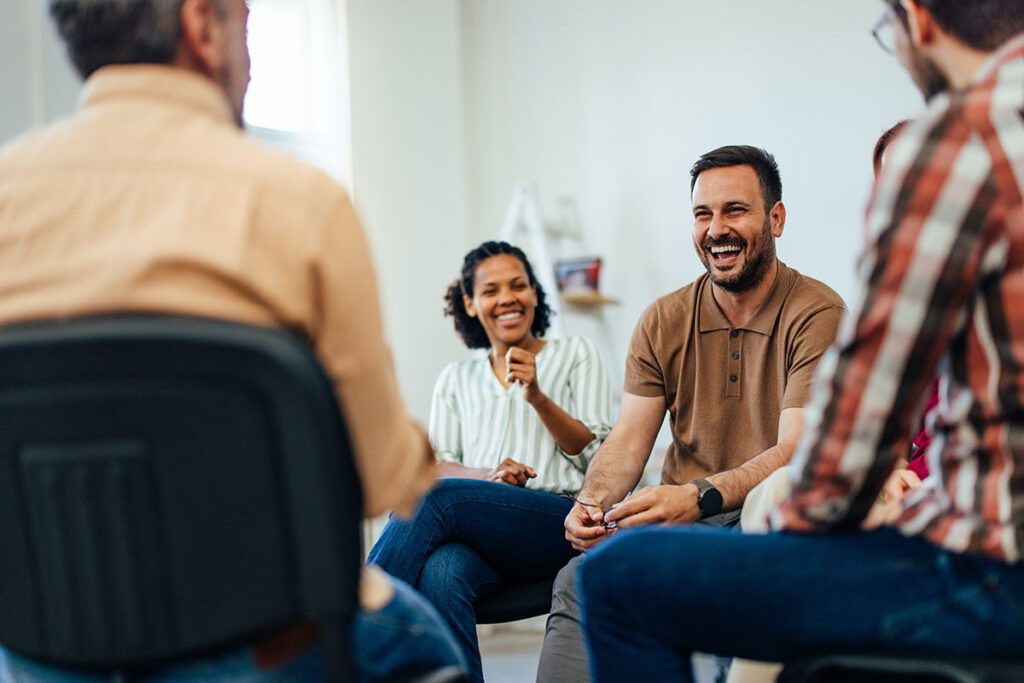The right support system can help make your addiction recovery efforts successful. Finding a group therapy program can bring the structure and community you need to build and maintain a lasting recovery from substance use disorder. However, not all addiction support groups are the same. Here’s what you should know when you’re considering addiction recovery support groups and how to choose one that works for you.
Woodland Recovery Center offers a range of addiction treatment programs and services for substance use disorder. For more information on addiction support groups in Mississippi, call 662.222.2989 and speak with one of our team members.
Why Join an Addiction Support Group?
Addiction is a complex condition that affects not only the individual struggling with substance use but also their loved ones. It can be isolating and overwhelming for both the person struggling with addiction and their family members. Joining an addiction support group can provide a sense of community, understanding, and acceptance for those affected by addiction. Support groups for addiction can help you continue building the skills you need for a thriving life in recovery. These groups offer a safe space to share your experiences, challenges, and successes with others who can relate.
Different Types of Addiction Support Groups
Support groups for addiction provide community and accountability. When you regularly attend sessions, you build relationships and gain insight into how you can strengthen your mental and emotional health. This is a powerful factor in combating the risk of relapse.
Regardless of which type of support group you join, you can benefit from having:
- Friends who understand the struggles and victories of recovery
- A community that doesn’t engage in substance use
- A place to seek help when struggling with cravings
- The opportunity to give and receive advice and feedback
- Others who support your journey and want you to succeed
However, when you start looking for support groups in Mississippi, you’ll see that there are many choices available. Items to consider when choosing a support group include:
- 12-step or alternative model
- Religious or secular program
- In-person or online meeting
- Evidence-based or alternative programming
These choices can be a lot to consider, especially if you’ve never participated in an addiction recovery support group before. When in doubt, choosing group counseling through an established treatment center is a good choice.
The Impact of Group Therapy Programs
A group therapy program run by a treatment center offers a higher level of care than most other addiction recovery groups. Most recovery groups involve participation at will, which can make consistently attending meetings difficult, especially when you’re new to recovery. However, group therapy is typically part of a comprehensive addiction treatment program, which means that attendance and participation are expected as part of the overall treatment plan.
Group counseling typically involves going through an initial intake process. A treatment team will help you set up a plan that works for you, and your attendance and participation are expected at every session. This creates a high level of accountability and personalized care.
Group sessions can also be smaller and more personal than larger recovery groups. Participants can get to know one another quickly and work together to support one another through the challenges and victories they face each week.
Group therapy uses evidence-based practices proven to be effective in supporting addiction recovery, including cognitive-behavioral therapy (CBT) and dialectical behavior therapy (DBT). A licensed professional moderates sessions. If you need extra support, the therapist leading the session can give targeted advice and suggestions.
Tips on Finding Support Groups for Drug Addiction
Finding the right support group for drug addiction can significantly enhance your recovery journey. Here are a few practical tips to help you get started:
- Research extensively – Read about the different support groups available in your area. Websites, social media, and recovery forums can be excellent resources.
- Ask for recommendations – Talk to healthcare professionals, counselors, or individuals in recovery for personal recommendations.
- Attend multiple meetings – Give yourself the chance to visit several groups before deciding which one feels like the right fit for you.
- Consider your personal beliefs and preferences – Whether you prefer a secular approach or one that aligns with your spiritual beliefs can greatly impact your comfort and participation level.
- Look for an inclusive, supportive environment – Choose a group where you feel safe, respected, and understood.
The goal is to find a community that resonates with you and fosters a positive environment for your recovery. Woodland Recovery Center and our group therapy program welcomes individuals from all backgrounds and beliefs who share the common goal of overcoming addiction. Our licensed professionals lead sessions that promote trust, empathy, and growth among participants.
Call Woodland Recovery Center Today to Join Our Support Groups for Addiction Recovery
Taking the first step toward recovery is a courageous act, and we at Woodland Recovery Center are here to support you on this life-changing journey. Our addiction recovery support groups provide a compassionate, understanding environment where you can openly share your experiences and challenges. Led by licensed professionals and packed with individuals who genuinely care and understand, our groups can be the solid foundation you need for lasting recovery. Contact us online or call Woodland Recovery Center at 662.222.2989 today and discover how joining our support groups can empower your path to recovery and wellness.



